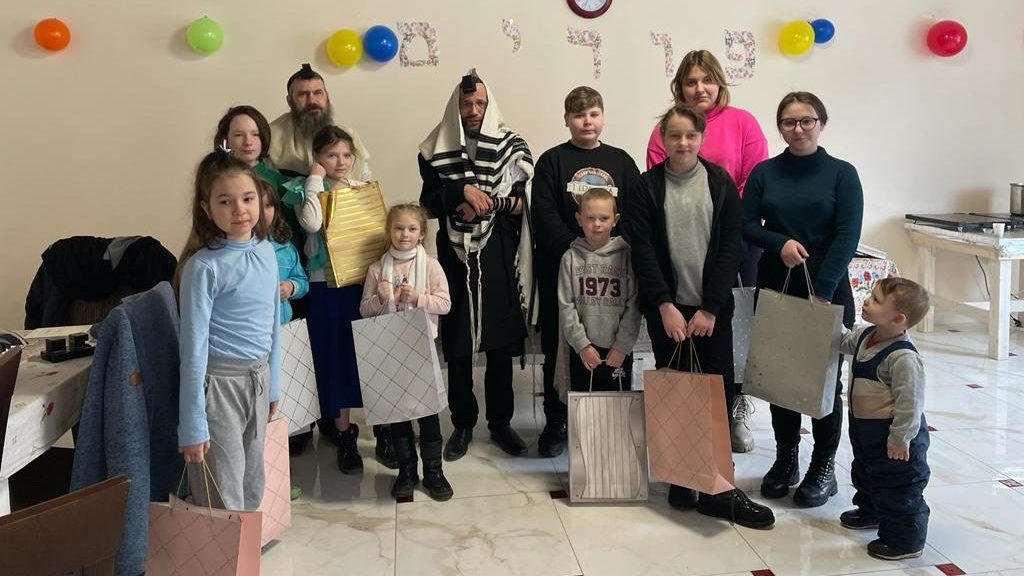Jews in War-torn Ukraine Use Purim Story as Guide to Resilience
Rabbis who had gotten to Israel returned to Ukraine to celebrate with those who stayed
Rabbi Meir Holtzberg, director of Chabad-Lubavitch of Bila Tserkva, a city 50 miles south of Kyiv, told The Media Line that having a Purim celebration gives him hope.
“It shows me that the Jewish people lives, that the Jews of Ukraine have, and will have, a flourishing Jewish life, and that there will be a future for Ukrainian Jewry,” he said.
Holtzberg was on a trip outside the country when the Russian invasion began but returned to Ukraine. He toured Jewish communities to ensure that they were able to celebrate the festival, including holding communal readings of the biblical Book of Esther.
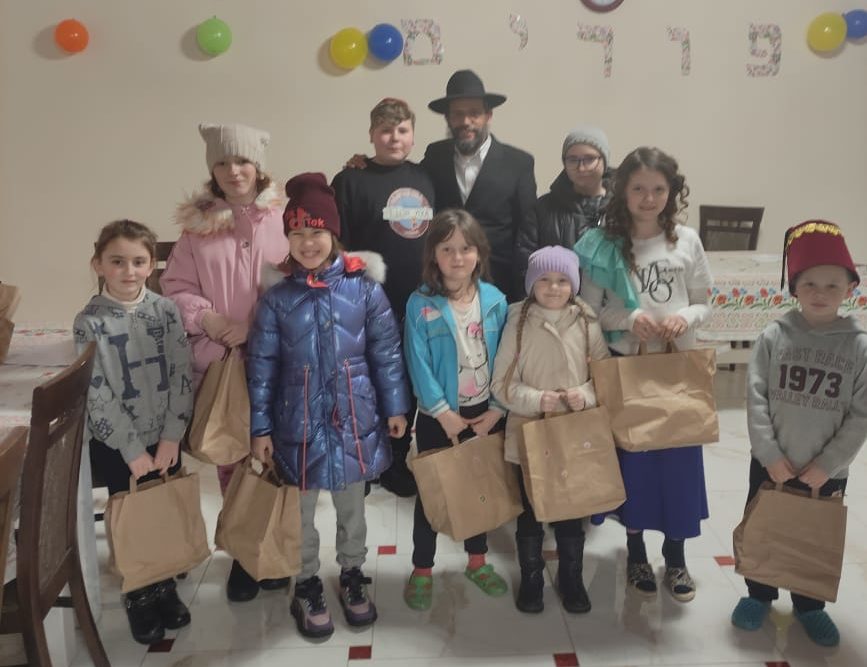
Rabbi Meir Holtzberg toured Jewish communities across Ukraine to ensure that they were able to celebrate Purim, March 17, 2022. (Courtesy)
The book tells how Esther, a Jewish queen in ancient Persia, convinced King Ahasuerus (usually identified as Xerxes I) to thwart his viceroy Haman’s plot to kill all the Jews in the Persian Empire. Attending public recitations of the book is a mainstay of the holiday, which this year ran from Wednesday evening through Thursday night.
Holtzberg first celebrated Purim in Yaremche, a town in western Ukraine, about 35 miles from the Romanian border, where many refugees from the city of Zhytomyr, about 85 miles west of Kyiv, are staying.
He said that about 80 people attended the celebrations there, which he described as very enjoyable. “There was Jewish music played by a DJ, and a dance show about the story of the book [of Esther] performed by the children of the school from Zhytomyr,” he added.
The challenge is to bring out the joy in them, he said. “They are refugees from Zhytomyr; they live in uncertainty. Therefore, they are more concentrated on thoughts about the future,” he continued.
This holiday season, give to:
Truth and understanding
The Media Line's intrepid correspondents are in Israel, Gaza, Lebanon, Syria and Pakistan providing first-person reporting.
They all said they cover it.
We see it.
We report with just one agenda: the truth.


From there, Holtzberg continued to the town of Irshava, near Ukraine’s borders with both Romania and Hungary, to celebrate with the Jews in that area.
The Media Line also met with Rabbi Shlomo Wilhelm, the director of Chabad of Zhytomyr.
Wilhelm, who helped many Jews evacuate the conflict areas and get to safe places, is now in Israel with about 100 children as well as staff members from the orphanage he ran in Zhytomyr. They are staying at the Nes Harim Field and Forest Education Center, just west of Jerusalem, which is operated by the Keren Kayemeth LeIsrael-Jewish National Fund (KKL-JNF).
Wilhelm, speaking during the Purim party held for the children, said they are healing during their stay in Israel, and that he and everyone from Zhytomyr are grateful for the hospitality and for the huge Purim happening KKL-JNF organized for them.
People from communities near Nes Harim gathered to celebrate the festival with the children on Thursday. Many volunteers showed up to provide them with activities, food, and costumes.
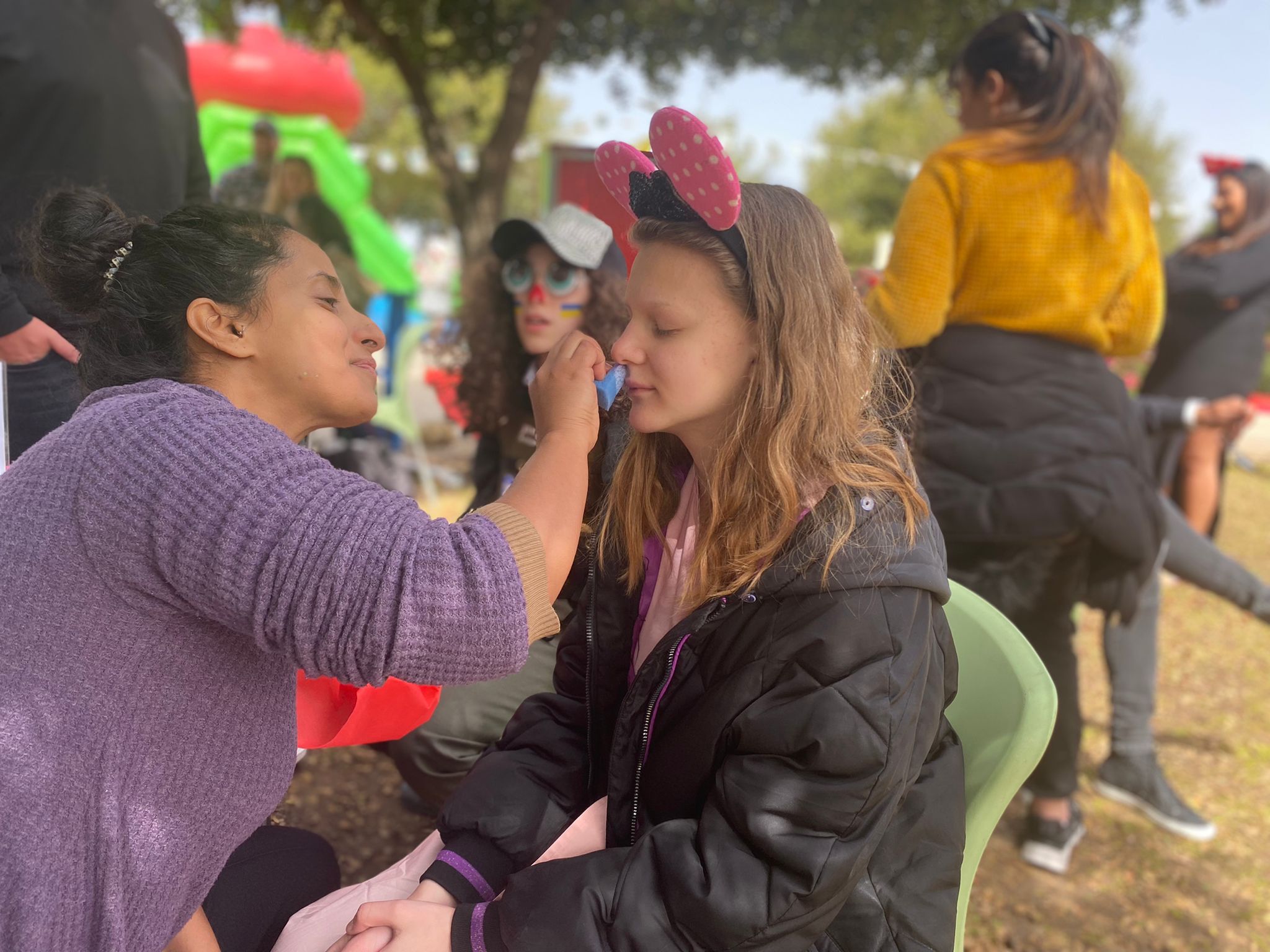
Israeli and Ukrainian children celebrate Purim together at the Nes Harim Field and Forest Education Center, outside of Jerusalem, March 17, 2022. (Debbie Mohnblatt/The Media Line)
Gili Maimon, director of the Nes Harim Center, told The Media Line that about 350 people from nearby communities came to celebrate with the 140 Jews from Zhytomyr.
She stressed how nice it was to see the Israeli and Ukrainian children playing and celebrating the holiday together despite the language barrier.
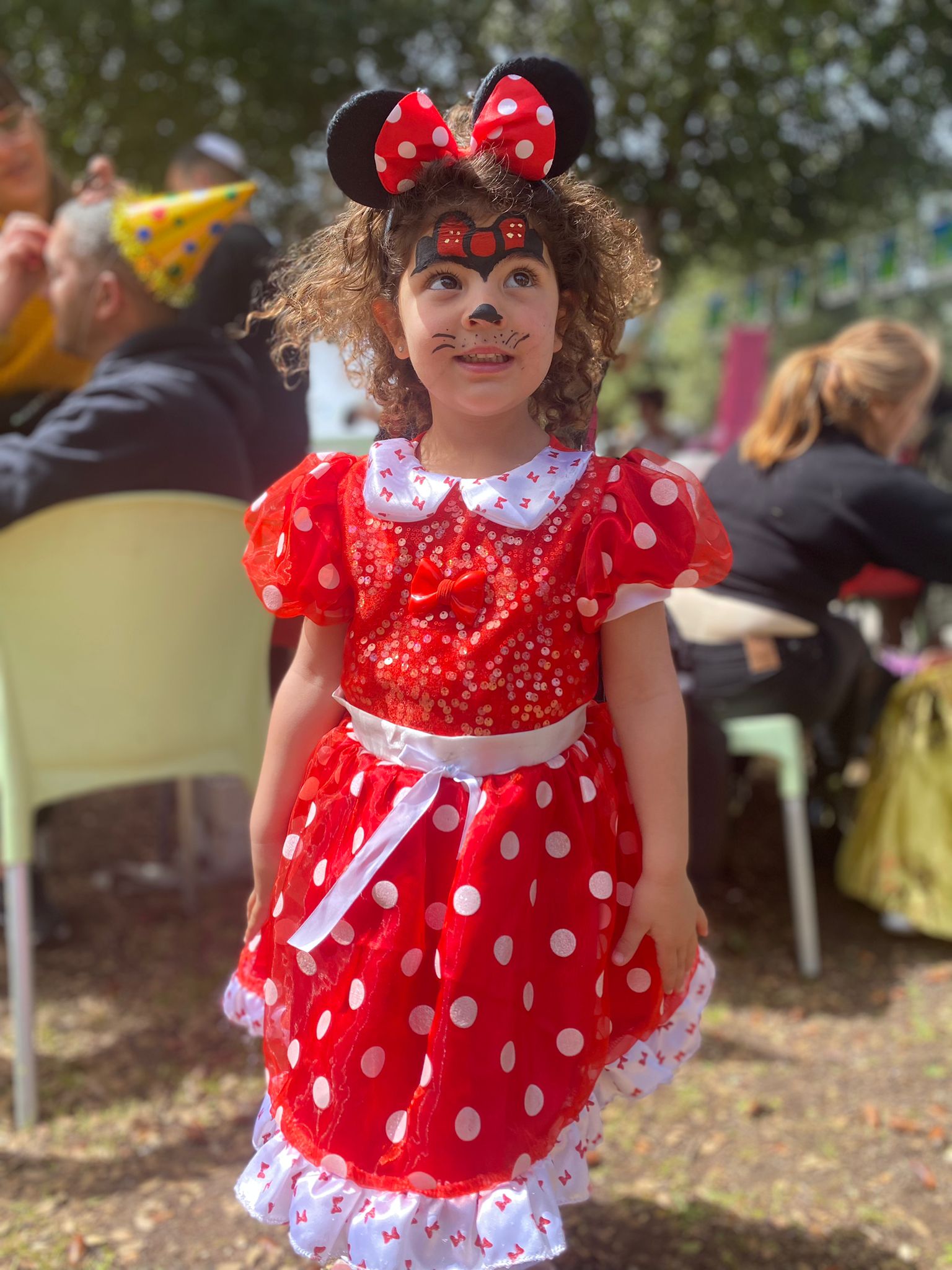
Children participate in Purim celebrations at the Nes Harim Field and Forest Education Center, outside of Jerusalem, March 17, 2022. (Debbie Mohnblatt/The Media Line)
Wilhelm said he also helped to plan the holiday celebrations in Zhytomyr, where people were only able to celebrate during the daytime because of the curfew imposed in an effort to keep them safe at night.
“Today the Jews who can make it will come to the community center. They will have a dinner, the kids are getting gifts, they will read the Book of Esther, and all the traditions will still be fulfilled,” he said.
He also played a role in the festivities in hotels close to the border with Romania that are hosting refugees from Ukraine. “There I’m also arranging Purim celebrations; rabbis who had gotten to Israel are going back there to celebrate Purim with the Jewish communities that stayed,” Wilhelm said.
Menachem Glisnshtain, the Chabad rabbi of Chernivtsi, a city 20 miles from the border with Romania, also shared this year’s Purim experience with The Media Line.
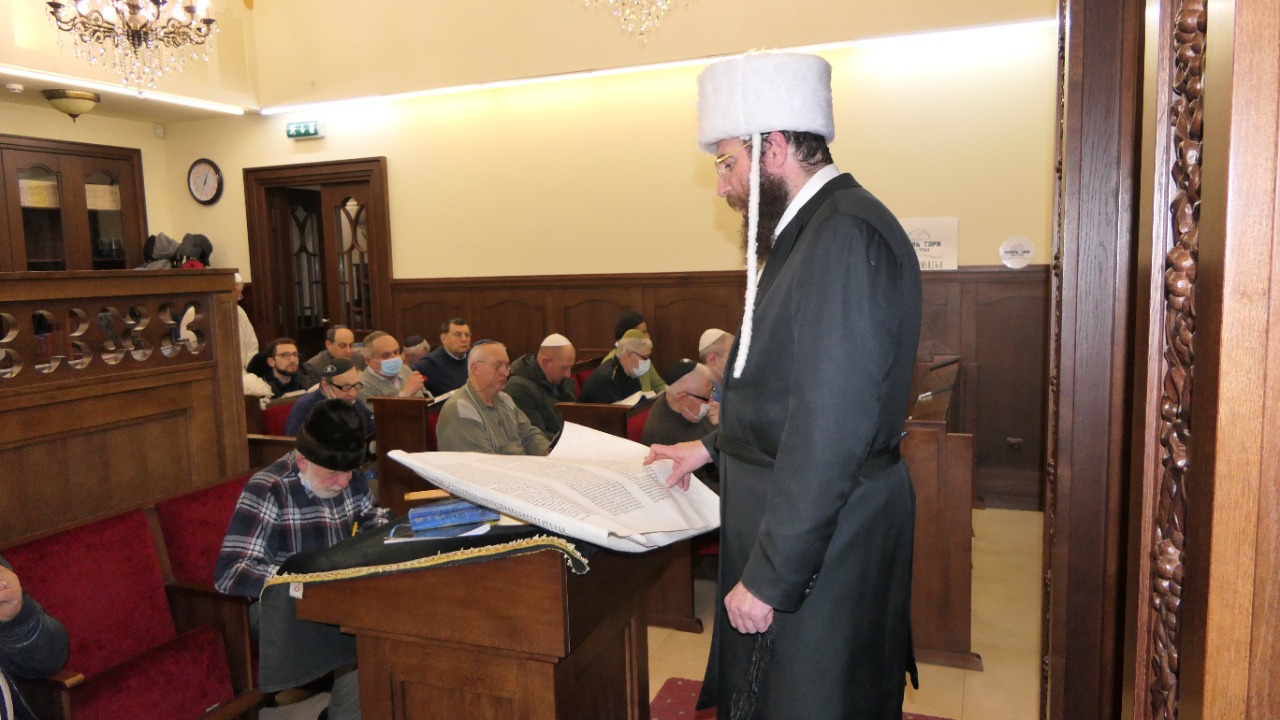
Rabbi Menachem Glisnshtain reads the biblical Book of Esther for members of the local Jewish community and Jewish refugees, in Chernivtsi, Ukraine, March 17, 2022. (Courtesy)
There are 2,000 local Jews in the city, and the Jewish community is hosting an additional 1,000 refugees from all over Ukraine, Glisnshtain said.
So as not to offend the non-Jewish population by mounting a large celebration in hard times, they held a small party every hour in the synagogue hall, he explained.
Using the Book of Esther’s narrative as example and inspiration, Glisnshtain told the Jews gathered in Chernivtsi that everything happens according to God’s will and that they could take hope from the belief that God will provide a way out of their situation just as He did for Jews in other harsh times, Glisnshtain said.
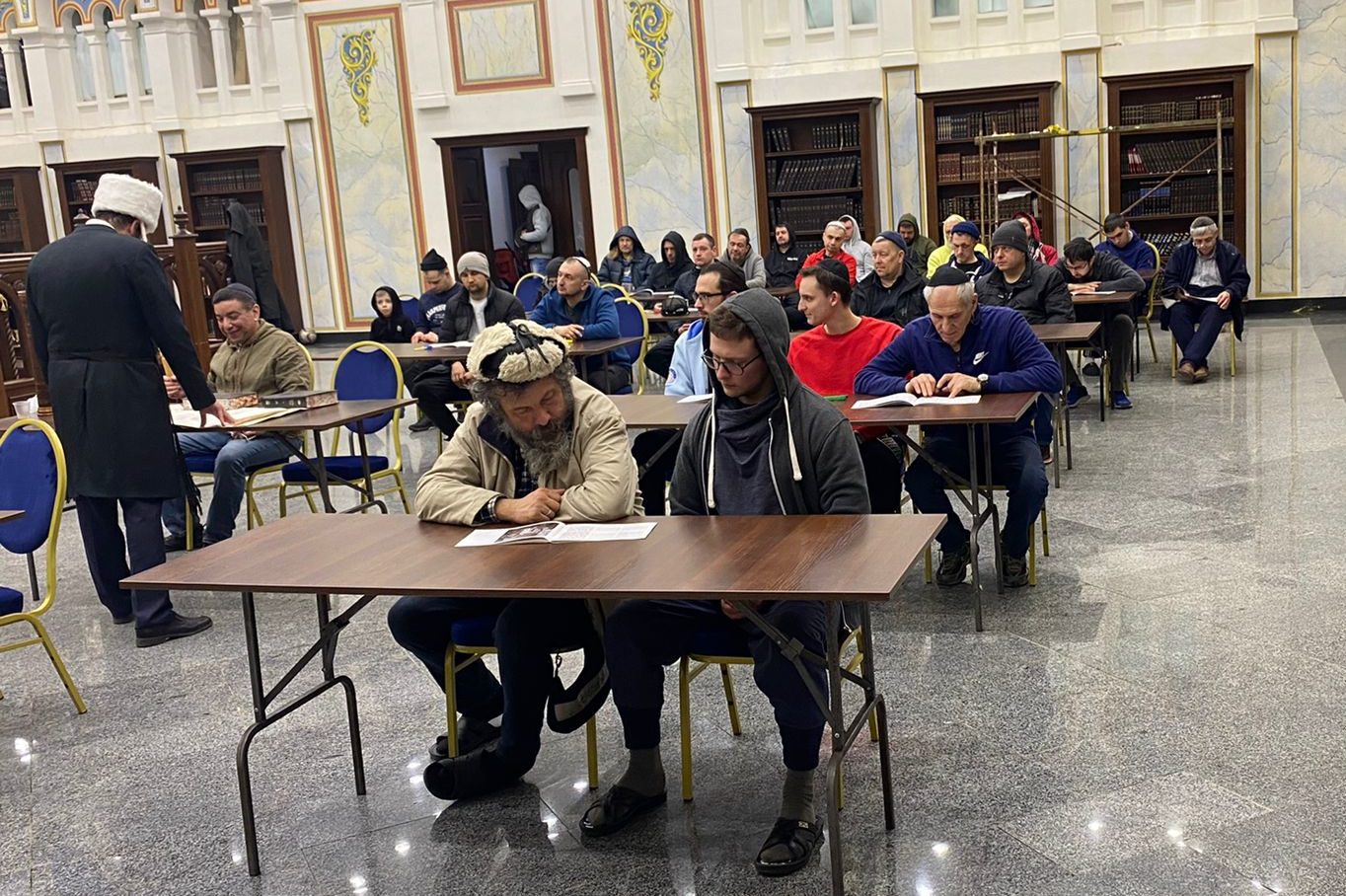
Rabbi Menachem Glisnshtain celebrates Purim with members of the local Jewish community and Jewish refugees from across the country, in Chernivtsi, Ukraine, March 17, 2022. (Courtesy)
